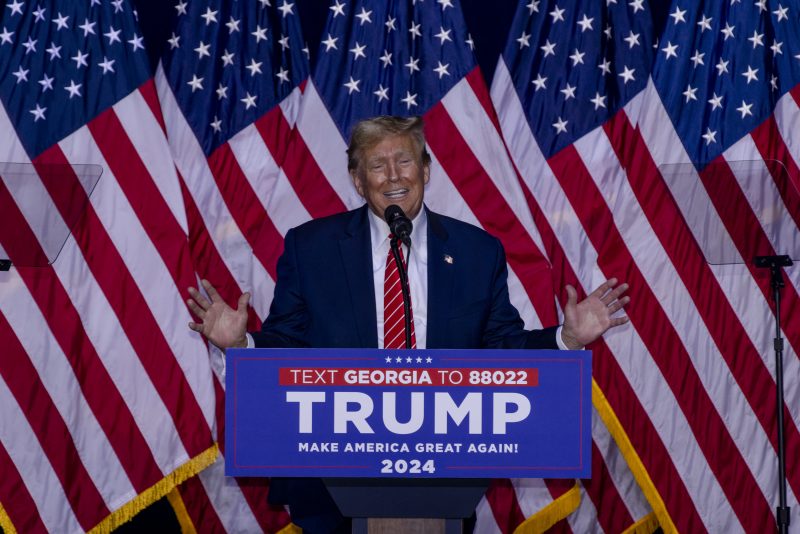
Trump’s Legal Maneuver: Seeking Trial Delay in New York Amid Supreme Court Immunity Battle
In a recent legal development, former President Donald Trump is seeking a delay in a New York trial pending a Supreme Court hearing on immunity for presidents. This move comes as Trump faces multiple legal challenges stemming from his time in office, with investigations into his financial dealings and business practices intensifying.
The crux of the matter lies in the question of whether a sitting or former president can be held personally liable for actions taken while in office. Trump’s legal team argues that the Supreme Court should clarify the extent of presidential immunity, given the potential impact on not only his case but also the broader legal landscape for future presidents.
The New York trial in question pertains to allegations of fraud and misconduct in Trump’s business dealings, particularly concerning his company’s financial practices. The delay sought by Trump is aimed at allowing the Supreme Court to weigh in on the matter before any potential legal proceedings move forward.
This legal maneuvering highlights the complex interplay between presidential powers, legal accountability, and the rule of law. In a democracy, no one, not even a former president, is above the law. However, the issue of presidential immunity raises important constitutional questions that require careful consideration.
Critics of Trump’s request for a delay argue that justice delayed is justice denied. They contend that the former president should not be shielded from facing legal scrutiny, especially in light of the serious allegations against him. On the other hand, supporters of Trump emphasize the need for clarity on the issue of presidential immunity to avoid setting dangerous precedents that could undermine the presidency’s integrity.
The outcome of this legal battle will have far-reaching implications for the balance of power between the executive branch and the judiciary. It will also serve as a litmus test for the strength of the rule of law in the United States and the accountability of those entrusted with public office.
As the legal proceedings unfold, it is crucial to remember that the principles of justice, fairness, and accountability must be upheld, regardless of one’s political affiliation or stature. The rule of law is a cornerstone of any democratic society, and its preservation is essential for ensuring that no one is above the law, no matter how powerful or influential they may be.
